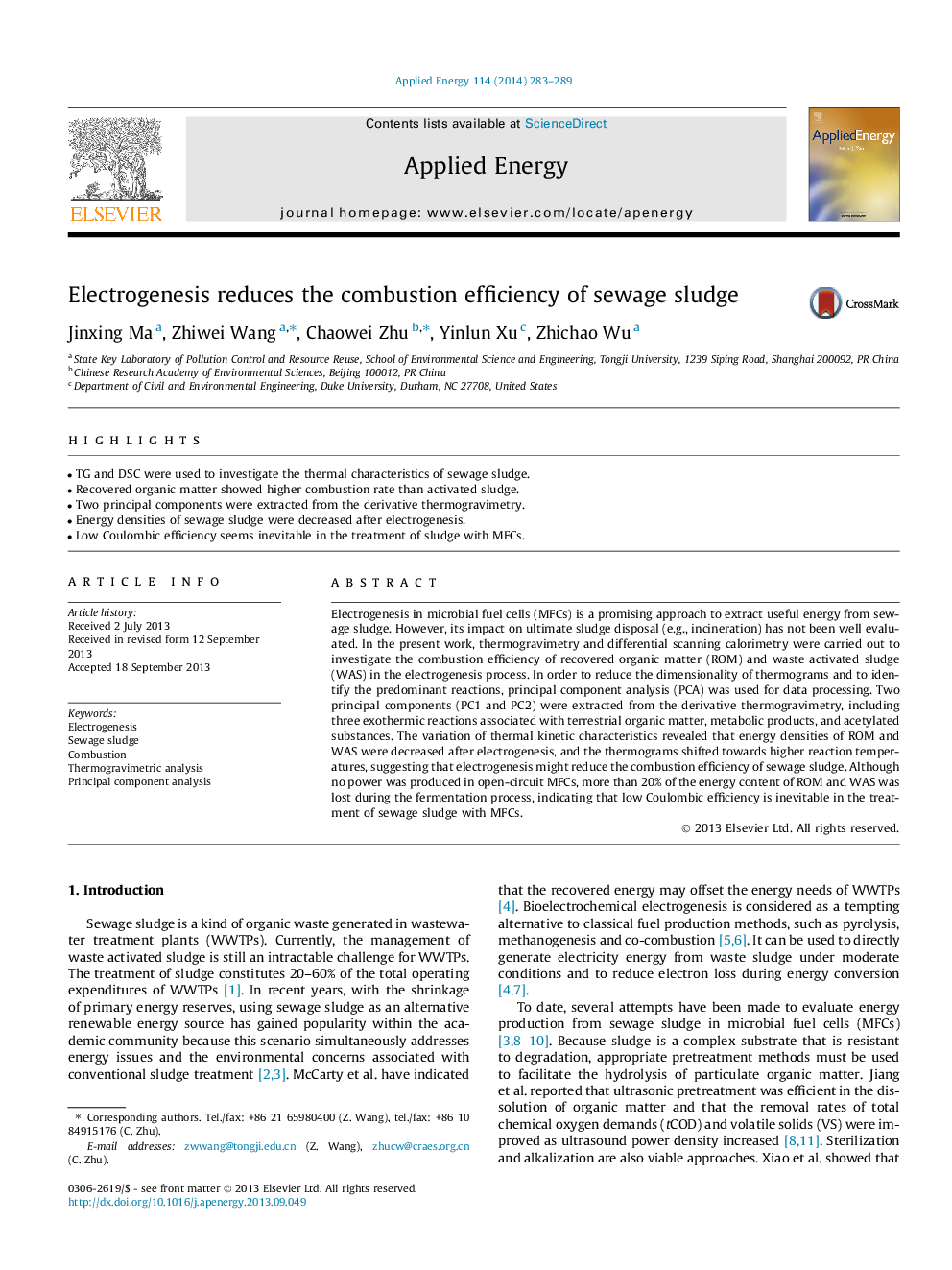| کد مقاله | کد نشریه | سال انتشار | مقاله انگلیسی | نسخه تمام متن |
|---|---|---|---|---|
| 6691475 | 501911 | 2014 | 7 صفحه PDF | دانلود رایگان |
عنوان انگلیسی مقاله ISI
Electrogenesis reduces the combustion efficiency of sewage sludge
ترجمه فارسی عنوان
الکتروژنز باعث کاهش کارایی احتراق لجن فاضلاب می شود
دانلود مقاله + سفارش ترجمه
دانلود مقاله ISI انگلیسی
رایگان برای ایرانیان
کلمات کلیدی
الکتروژنز، لجن فاضلاب، احتراق تجزیه و تحلیل ترموگرافی، تجزیه و تحلیل مولفه اصلی،
موضوعات مرتبط
مهندسی و علوم پایه
مهندسی انرژی
مهندسی انرژی و فناوری های برق
چکیده انگلیسی
Electrogenesis in microbial fuel cells (MFCs) is a promising approach to extract useful energy from sewage sludge. However, its impact on ultimate sludge disposal (e.g., incineration) has not been well evaluated. In the present work, thermogravimetry and differential scanning calorimetry were carried out to investigate the combustion efficiency of recovered organic matter (ROM) and waste activated sludge (WAS) in the electrogenesis process. In order to reduce the dimensionality of thermograms and to identify the predominant reactions, principal component analysis (PCA) was used for data processing. Two principal components (PC1 and PC2) were extracted from the derivative thermogravimetry, including three exothermic reactions associated with terrestrial organic matter, metabolic products, and acetylated substances. The variation of thermal kinetic characteristics revealed that energy densities of ROM and WAS were decreased after electrogenesis, and the thermograms shifted towards higher reaction temperatures, suggesting that electrogenesis might reduce the combustion efficiency of sewage sludge. Although no power was produced in open-circuit MFCs, more than 20% of the energy content of ROM and WAS was lost during the fermentation process, indicating that low Coulombic efficiency is inevitable in the treatment of sewage sludge with MFCs.
ناشر
Database: Elsevier - ScienceDirect (ساینس دایرکت)
Journal: Applied Energy - Volume 114, February 2014, Pages 283-289
Journal: Applied Energy - Volume 114, February 2014, Pages 283-289
نویسندگان
Jinxing Ma, Zhiwei Wang, Chaowei Zhu, Yinlun Xu, Zhichao Wu,
